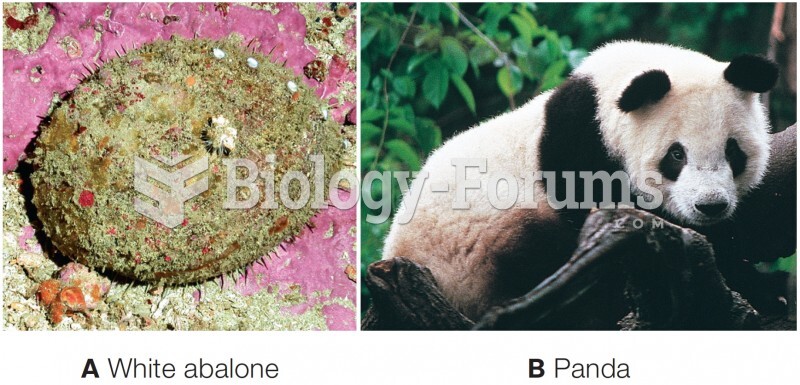|
|
|
Did you know?
Excessive alcohol use costs the country approximately $235 billion every year.
Did you know?
Most fungi that pathogenically affect humans live in soil. If a person is not healthy, has an open wound, or is immunocompromised, a fungal infection can be very aggressive.
Did you know?
The calories found in one piece of cherry cheesecake could light a 60-watt light bulb for 1.5 hours.
Did you know?
The National Institutes of Health have supported research into acupuncture. This has shown that acupuncture significantly reduced pain associated with osteoarthritis of the knee, when used as a complement to conventional therapies.
Did you know?
There are over 65,000 known species of protozoa. About 10,000 species are parasitic.
 These species are all at risk of extinction. Species with “slow†life-h
These species are all at risk of extinction. Species with “slow†life-h
 Zebras are several species of African equids (horse family) united by their distinctive black and wh
Zebras are several species of African equids (horse family) united by their distinctive black and wh





